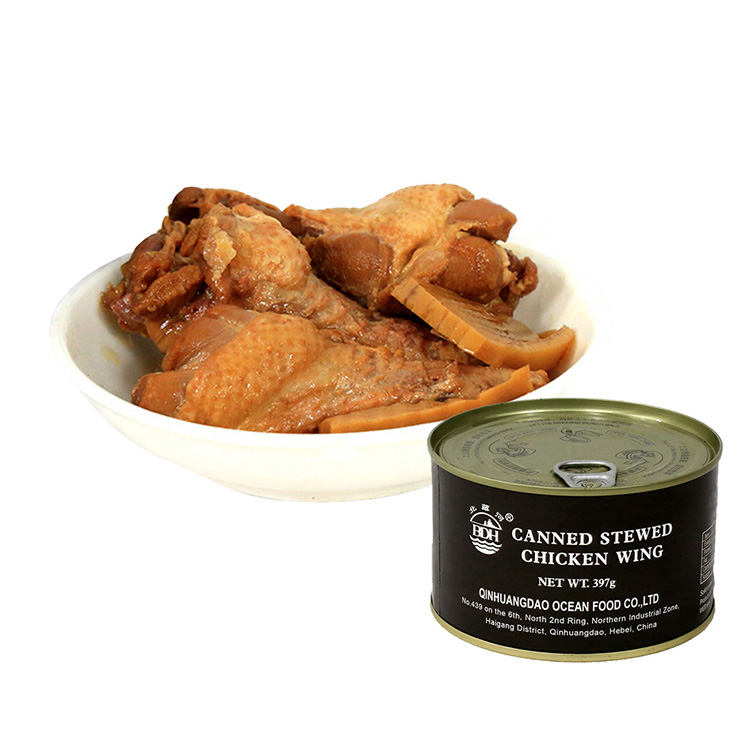Considerations related to canned chicken
2024-01-25
Canned chicken refers to chicken meat that has been cooked, processed, and sealed in a can for preservation. It is a convenient and long-lasting food product that can be stored without refrigeration for an extended period. Canned chicken comes in various forms, including chunks, shredded, or ground, and it is a versatile ingredient that can be used in a variety of recipes. Here are key features and considerations related to canned chicken:
Key Features:
1. Preservation Method:
- Canned chicken is preserved through the process of canning, which involves cooking the chicken, sealing it in a can, and subjecting it to heat to destroy bacteria and other microorganisms, preventing spoilage.
2. Long Shelf Life:
- One of the main advantages of canned chicken is its long shelf life. Properly canned chicken can be stored for an extended period without the need for refrigeration, making it suitable for emergency food supplies or situations where refrigeration is not available.
3. Convenience:
- Canned chicken is a convenient and ready-to-use option. It eliminates the need for extensive preparation and can be used in various dishes without the hassle of cooking raw chicken.
4. Versatility:
- Canned chicken is versatile and can be used in a variety of recipes. It can be added to salads, sandwiches, wraps, soups, casseroles, and other dishes to provide a quick and easy source of protein.
5. Seasoning Options:
- Depending on the brand and type, canned chicken may come seasoned or plain. Seasoned varieties may include flavors such as barbecue, lemon pepper, or buffalo.
6. Storage:
- Canned chicken is typically stored at room temperature in a cool, dry place. Once opened, any unused portion should be refrigerated and consumed within a certain timeframe, as specified on the product.
Considerations:
1. Nutritional Content:
- Check the nutritional information on the label to understand the calorie, protein, fat, and sodium content of the canned chicken. Different brands and varieties may have varying nutritional profiles.
2. Ingredients and Additives:
- Review the list of ingredients to be aware of any additives, preservatives, or flavorings used in the canned chicken. Some people may have dietary preferences or restrictions regarding certain additives.
3. Brand Reputation:
- Consider the reputation of the brand when purchasing canned chicken. Established and reputable brands are more likely to adhere to quality standards in their production processes.
4. Expiration Date:
- Always check the expiration date on the can before purchasing. Consuming canned chicken beyond its expiration date may pose health risks.
5. Storage Conditions:
- Store canned chicken in a cool, dry place away from direct sunlight. Avoid storing cans in areas with extreme temperatures.
6. Usage in Recipes:
- Canned chicken can be used in various recipes, but the texture and flavor may vary between brands. Experiment with different brands to find the one that best suits your preferences.
7. Inspect Cans:
- Before opening a can, inspect it for any signs of damage, bulging, or leakage. Do not consume canned chicken from a damaged or compromised can, as it may be unsafe.
Canned chicken is a convenient and reliable option for adding protein to meals, especially in situations where fresh chicken is not readily available. As with any canned food product, it's important to follow proper storage and usage guidelines to ensure safety and quality.



